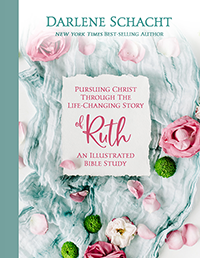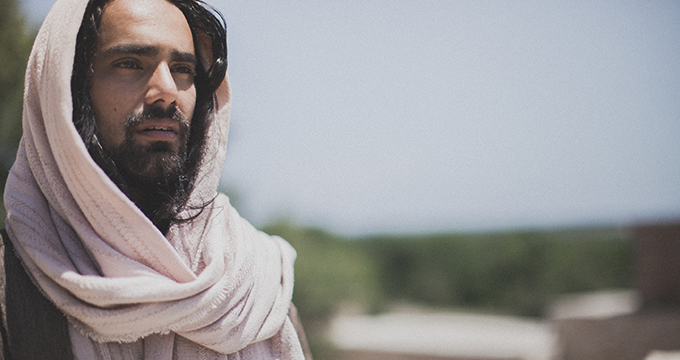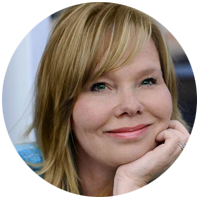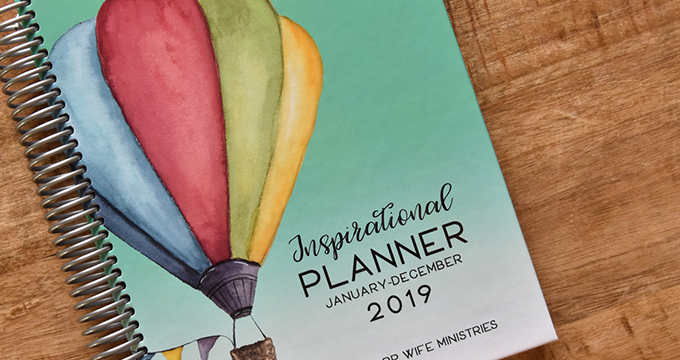 Our 4-week Bible study on the book of Ruth continues with our final chapter, Ruth chapter 4.
Our 4-week Bible study on the book of Ruth continues with our final chapter, Ruth chapter 4.
Some people have been asking where the printable study guide is. Unlike previous studies, I don’t have a printable version for this one. What I’m doing instead is providing the same information on a weekly basis. It’s my hope in doing this that content will stay fresh and readers will stay connected.
You’ll see that the questions are interspersed throughout the text below. I kept them that way so that you are answering them both in order and in the context of the ideas I’m expanding on.
I’ll return on Friday with my thoughts on this chapter and encouraging words that offer practical application.
If you haven’t done so already, you can purchase a copy of the study guide at Amazon. Click here.
If you don’t want to purchase a study guide, you don’t have to. Everything you need for the study has been provided throughout the four weeks on the blog.
If you haven’t done so already, make sure to subscribe, so you don’t miss a post: 
Ruth Chapter 4 – Thou Shalt Renew and Sustain Me

“For your Maker is your husband, the Lord Almighty is his name, the Holy One of Israel is your Redeemer; he is called the God of all the earth.” – Isaiah 54:5, NIV
This chapter begins by telling us that Boaz went up and sat at the town gate. Digging into scripture, we see that this area was a public place where people often met to discuss and settle matters. In a way it was similar to what we now refer to as a town hall meeting, a market place, or a courthouse. This seemed to be a common occurrence in Bible times as we’ll often find leaders sitting at the city gates, or people assembling at the gates. In fact, as we read through scripture we see that a lot of activity took place at the city gates.
Some references include:
Lot at the gate of Sodom (Genesis 19:1)
Abraham in front of an audience of the children of Heth (Genesis 23:10)
David sitting at the gate, and all the people came to the gate to hear him. (2 Samuel 19:8)
David acknowledging the murmuring against him at the city gates (Psalm 69:12)
The husband of Proverbs 31 woman was known at the gates and sat among the elders (Proverbs 31:23)
The Bible tells us that just as Boaz sat down, the “kinsman” walked by. Is that another coincidence? Or could it be that God was directing this love story with precision and care?
Keep that thought in mind when it comes to your own life—He’s leading the way. It’s a mind-blowing thought to realize that the very same God who designed this universe and hung every star is directing your life. His timing is precise, His details are meticulous, and His thoughts are beyond anything we could ever imagine or think for ourselves. People don’t walk into our lives by chance. And we aren’t here by chance either. You were created for a purpose, and every breath that you take is drawn by His grace.
BOAZ MEETS WITH THE GUARDIAN REDEEMER
Depending on what version of the Bible you are reading, you’ll either see the word “kinsman” or “guardian redeemer.” Both are one in the same, being the closest relative to Naomi’s former husband Elimelech. Rather than telling us his name, the narrator simply refers to him as the “guardian redeemer” (Hebrew go’el).
Boaz sets the stage, asking the “elders” to bear witness to their discussion.
How many elders did Boaz request to be present?
Benson’s Commentary writes, “To be witnesses; for though two or three witnesses were sufficient, yet in weightier matters they used more. And ten was the usual number among the Jews in causes of matrimony and divorce, and translation of inheritances; who were both judges of the causes and witnesses of the fact.”
What was the first issue that Boaz discussed with the guardian redeemer?
What was the relative’s initial response?
What was the second issue that Boaz brought to the attention of the guardian redeemer?
What was the guardian redeemer’s response to the second matter at hand?
Boaz states his intentions in front of the witnesses, offering the unnamed man first right of redemption. Boaz offers the kinsman the right to purchase Elimelech’s land but also advises him that should he wish to purchase the land, he must also take Ruth to be his wife so that Elimelech’s name would live on.
Although this historical account is true, remember from the previous chapters that Naomi typified Israel, Ruth typified the Gentiles who were grafted into the faith alongside them, and Boaz typified Jesus Christ as our Kinsman Redeemer. It’s interesting to note that in this chapter we are introduced to an unknown next-of-kin who would seem to typify the law which was powerless to redeem mankind.
At this, the guardian-redeemer said, “Then I cannot redeem it because I might endanger my own estate. You redeem it yourself. I cannot do it.” – Ruth 4:6
What do we learn about the law from Romans 8:3?
The law was a shadow of the coming Messiah, but it could never pay the price that Jesus Christ could. The sacrifices that were brought to the temple year after year were a constant reminder of sin. This was God’s way of teaching man that they desperately needed redemption.
In this chapter, we see that Ruth is in need of redemption, but the kinsman “cannot” pay the price. Buying the land was inviting, but marrying Ruth meant that he would also raise up the name of Elimelech and destroy his own inheritance.
Here’s an interesting thought… just as there were 10 witnesses who saw what the kinsman could not do, there are ten commandants that bear witness to what the law cannot do. What do I mean by that? The ten commandments prove that we are in need of redemption. When we measure our lives up against them, we see how sinful we are. The law was good and just, but it couldn’t redeem mankind, it could merely condemn us. The law could point to our sin, but it couldn’t redeem us from sin.
A CALL TO SELF DENIAL
In some ways, the relative was like the rich young ruler found in Luke Chapter 18. We discussed this in Chapter One, but let’s take another look at it here.
Thou knowest the commandments, Do not commit adultery, Do not kill, Do not steal, Do not bear false witness, Honour thy father and thy mother. And he [the rich young ruler] said, “All these have I kept from my youth up.” Now when Jesus heard these things, he said unto him, “Yet lackest thou one thing: sell all that thou hast, and distribute unto the poor, and thou shalt have treasure in heaven: and come, follow me. And when he heard this, he was very sorrowful: for he was very rich. ~ Luke 18:20-23, KJV
In what ways are the near kinsman and the rich young ruler similar?
In Luke Chapter 19:1-10 we’re introduced to yet another rich man. How were his attitude and actions different from that of the rich young ruler?
John MacArthur writes, “The true gospel is a call to self-denial. It is not a call to self-fulfillment.”
You see the law and commandments were good—their purpose was to show us our need for a Savior–but the new covenant instructs us to give up our own desires to serve the Lord and raise up His name. That’s what being born again is all about. Our old life, along with its passions and desires, are gone and we are born into a new life that seeks to serve God through faith in Jesus Christ.
Does this mean that we need to sell everything we have to follow Christ? Not unless He’s specifically asking you to. God will allow our faith to be tested in a number of ways, and those things that we lay at His feet will differ one from another. The point is not that money in itself is evil, but that the love of money is the root of all evil. In fact, if we love anything more than we love Christ we are serving the wrong god.
Being a moral citizen does not make one a Christian. Confessing Jesus Christ as our Lord and Savior while turning away from our sin does. Pursuing God and walking according to His wisdom sets us apart as holy, if we’re not willing to do that we’re not walking according to our confession of faith.
The kinsman in Chapter Four wasn’t ready to give up his inheritance to become one with his people, and so he passed this right on to Boaz.
What does Mark 8:35&36 teach us about pursuing Christ, and the dangers of holding on to this world?
In your own words, explain what Paul is saying in Philippians 3:12-14
Removing one’s shoe was a custom in Israel as a public confirmation of transfer in the redemption process. This might seem like a silly way of handling a business transaction, but the thing is that literacy wasn’t as common back then as it is today. People didn’t always sign on a dotted line, they conducted their business before a group of witnesses and settled the matter before walking away. The shoes being two halves of one pair were symbolic of a legal agreement made between both parties.
Boaz knew that there was a coming Messiah, born through the line of Judah (Genesis 49:10) and therefore it was his honor to carry on the lineage of his family, “That the name of the dead be not cut off from his brethren.” It’s this hope in the coming Messiah that was counted as faith in the Old Testament, whereas our hope is in Jesus Christ Who came to redeem us and will come again.
What blessing did the elders give to Ruth?
What blessing did the elders give to Boaz?
We see Rachel & Leah mentioned in Verse 11. Briefly explain who they were.
God restored Naomi’s life. Boaz carried on the family name of Elimelech, and through his marriage to Ruth brought descendants to their family.
When we read that Naomi took the child and became “nurse” to it, let’s not confuse this with a wet nurse as we might see elsewhere in the Bible. The word “nurse” used here is ‘aman,’ Strong’s H539, which means to support, confirm, or be faithful.
The book of Ruth begins with the death of three men and ends with the life of three others. Who are the three men mentioned in Verse 17?
Elisabeth Elliot writes, “We are women, and my plea is ‘Let me be a woman, holy through and through, asking for nothing but what God wants to give me, receiving with both hands and with all my heart whatever that is.'”
You are loved by an almighty God,
Darlene Schacht
The Time-Warp Wife
P.S. I’ll see you on Friday for part two of chapter four.
Considering a gift to Time-Warp Wife Ministries? Click here to donate.
THIS WEEK’S CHALLENGE
Answer the call to self-denial. Consciously make choices do what is right in God’s eyes instead of choosing to do what feels right in the moment.
BIBLE VERSE
For what the law could not do, in that it was weak through the flesh, God sending his own Son in the likeness of sinful flesh, and for sin, condemned sin in the flesh. – Romans 8:3
ABOUT THE AUTHOR

Darlene Schacht and her husband Michael live in Manitoba Canada where the summers are beautiful and the winters are cold. Together they’ve come to learn that relationships aren’t always easy, but that marriage, the way God intended it to be, is a treasure worth fighting for.
She began her publishing journey about twelve years ago when she pioneered one of the first online magazines for Christian women, known at the time as “Christian Women Online Magazine.” After three years, Darlene left CWO to blog as a solo author at Time-Warp Wife Ministries.
It was also during this transition that she worked alongside actress Candace Cameron Bure to write the NYT Best-Selling book, Reshaping it All: Motivation for Spiritual and Physical Fitness. Reshaping it All was the winner of both the 2011 USA Best Book Awards and the 2012 Christian Reading Retailers Choice Awards.
Author of more than 15 books, Darlene continues to write and to minister to her readers through her blog at TimeWarpWife.com.
Connect with Darlene:
Facebook: @timewarpwife
Instagram: @timewarpwife
Pinterest: @timewarpwife
Twitter: @timewarpwife
Have You Ordered Your Planner Yet?
The 2019 Inspirational Planner:
Organize Your Life in One Book
Beauty and organization make The Inspirational Planner a book every Christian woman must have!

